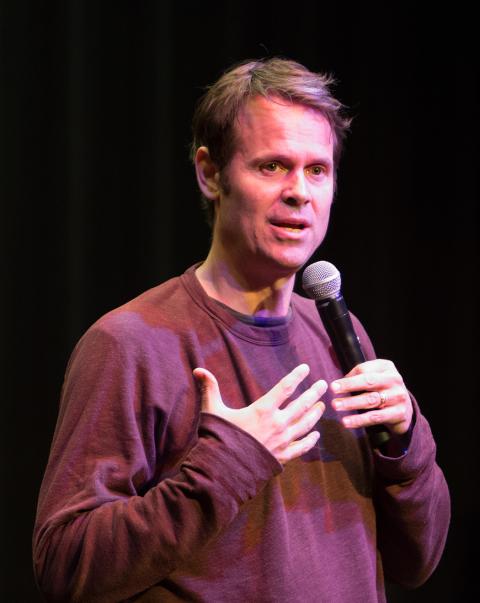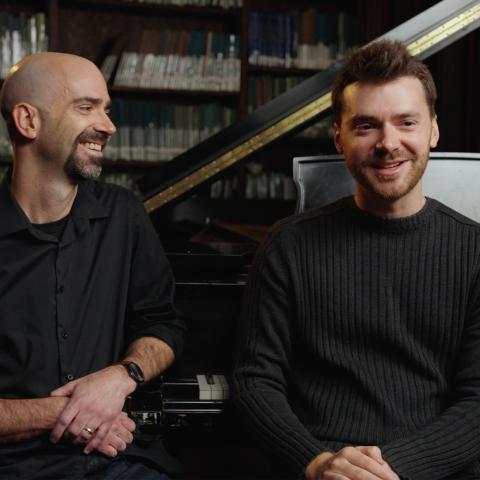Pandora’s Tim Westergren Speaks to Berklee

Tim Westergren
Mike Spencer
Pandora founder Tim Westergren spoke to a packed house of students at the 22nd annual James G. Zafris Distinguished Lecture for Berklee’s Music Business/Management Department. Introducing Westergren, Don Gorder, department chair, noted that Pandora, a personalized radio service with 81.5 million active listeners and 250 million registered users, “is clearly the leader in digital consumption of music via streaming.”
Westergren kicked off his talk by noting that, prior to founding Pandora, he nearly studied at Berklee. “I had the brochure and I had my ideas for courses picked out, but I wound up deciding to stay in the Bay Area.”
Westergren’s Pandora experience partly grew out of his days working as a touring musician living in a van—where he saw “a lot of talented trees falling in the forest” due to lack of radio airplay—as well as his work in film scoring and composing for feature films. A big part of that job entailed presenting directors with options that he could then use to home in on their taste for a project—a precursor to the process behind the Music Genome Project, the system of algorithms that powers Pandora.
Pandora’s employees, many of whom are skilled musicians, curate that system, which Westergren compares to “DNA profiles of music.” “You really need a grounding in music theory to be able to extract this information,” Westergren said of the work behind mapping the relationships between similar or dissimilar songs.
While Pandora now stands as the biggest radio station in every market of the country, Westergren said, his goals were achieved only after many tough years in which he maxed out his credit cards and struggled with doubts and stress-induced insomnia. “I pitched Pandora to investors 348 times before getting to yes, and that’s no fun,” he said.
Still, he knew his company had a compelling product, even if it hadn’t fully figured out the business model yet. A turning point came in the fall of 2005. With a new CEO, Pandora retooled itself as a personalized radio platform, and then connected with Apple and rode the wave of smartphone growth into the ubiquity it now enjoys. Now the company aims to “replace broadcast radio with a better experience,” and the numbers suggest it is well on its way to doing so.
Advice for New Music Entrepreneurs
Westergren told the audience that potential entrepreneurs must take a long, hard, and honest look at themselves before plunging ahead. Westergren knew that he would regret trying something and failing less than he would regret never having tried. Then he added, “It’s about your personal tolerance for insecurity and risk. I don’t think entrepreneurship is for everyone. Each person should ask themselves if they feel prepared to go through that.”
At the lecture’s conclusion, Berklee students swarmed the Pandora founder to ask additional questions. Mel Hart, a seventh-semester songwriting student, was encouraged by Westergren’s words. “We hear a lot about the music industry going downhill, but I think the music industry is going to be fine,” Hart said. “Hearing him talk about helping get new artists discovered gave me even more hope.”
Mike Keefe-Feldman is a writer in Berklee’s Digital Strategy and Communications Department.




